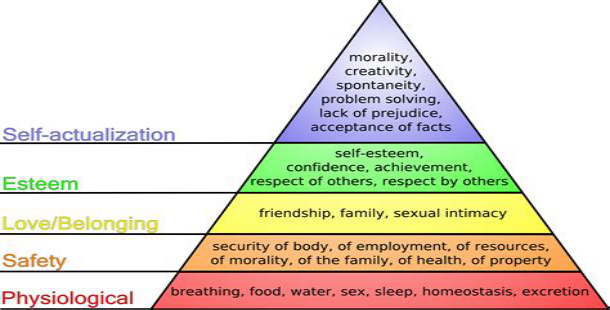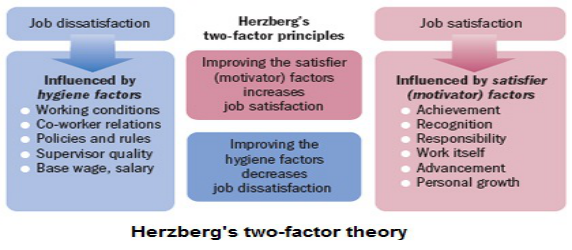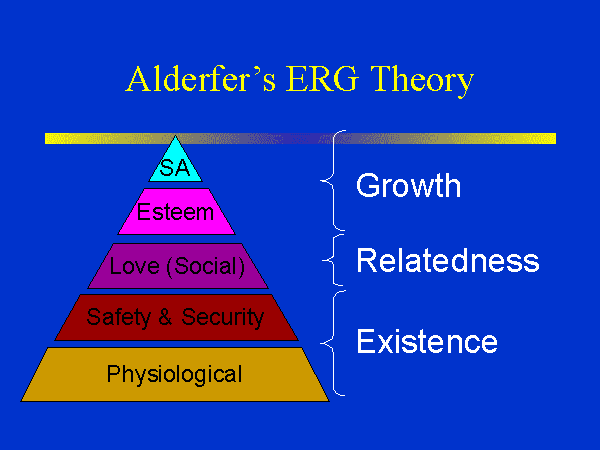INTRODUCTION
Organisational behaviour can be referred as evaluation of human behaviour in the setting of company along with interface between firm and human behaviour as well as company itself. Researcher analyse the individual behaviour initially in respect of their organisational goals. One of key goal of company is revitalise their theory and improve an effective conceptualised life of company. It is the manner of analysing, predicting, controlling and understanding the behaviour of their personnel to apply the best act accordingly (Andersson, Jackson and Russell, 2013). Report will assess various aspects of 4Com Plc deliver telecom services and other products associated with the United Kingdom including call recordings, digital handsets etc. Numerous organisational behaviour is evaluated due to politics, power and culture influence along with their team and individual motivation to attain the objectives. It will demonstrate proper understanding as well as philosophies and concepts of organisational behaviours in referred condition.
TASK 1
P1 Organisation’s culture, politics and power influence individual and team behaviour and performance
Company can be termed as the coordination and management of functioning specific tasks and actions in relation to attaining targets and objectives. Behaviour of organisation is the interaction and behaving techniques opted through enterprise's individual which is impacting over the environmental working. Individual who are functioning in the company are delivering accurate training and development. Numerous parameters of complied to efficient framework that have been set are implemented within the company. The culture, team, value and team play key role in the process of determination of policies as well as framework of 4Com that impact over the outcome of organisation efficiently (Avey, Palanski and Walumbwa, 2011).
4Com was initially formed in 1999 with the purpose of developing and modifying communication services of United Kingdom's small business enterprise market. The organisation has approximate 300 staff group and wide range of services which they are delivering to more than million consumer nationwide. Considering the value of their culture and organisational behaviour, the organisation need to outline impact of components such as culture, politics, power of organisation etc.
CULTURE
Culture Influence: Medium sized organisation which supply commodities across the universe is delivering numerous services and products. Hence, 4Com has carried out unique enterprise recognition among their consumer, clients and society. Enterprise need effective management to create better identification of brand which is fundamental for organisation to maintain more development and growth among individuals (Bolino and et. al., 2013). If the employees are convenient in functioning activities in the environment of 4Com, culture need to be more creative and productive to manage the activities accordingly. The employee productivity is higher I the worker are more comfortable while performing. The company deliver more positive and influencing working environment to their consumer. In regard to understand its influence over culture, the company opt Handy's culture typology which have been classified on the grounds of human behaviour discussed here:
- Power Culture:Organisational culture has crucial role in attaining power within the market. It can help employee to manage their working environment where company's coordination in power practices is being attempted through each individual.
- Role Culture: The role culture organisation are often relied on the terms and rules. Such entities are highly monitored along with the awareness of their duties and roles. This is set through an individual's position in the structure of company.
- Task Culture:this frames teams in company which are established to address certain project progress and issues.
Organisational culture can be termed as the values and principles that leader and manager share to their firm's associates. It can be termed as the process which is determined the worker communication standard along with business transaction control. 4Com is dealing with pride of their company's culture (Colquitt and et. al., 2011). This is built over the hard work across whole business, attaining and striving excellence at every activities and involvement as a part of community. Positive and negative practices and behaviour that presents among employee which reflect the individual performance. The culture presents their office environment, business hours, worker benefits, client treatment, satisfaction etc.
POWER
The politics and power of the company also affect their organisational behaviour which include those activities that are fundamental to act in order to achieve set outcome which is impossible to achieve. Whole tactics have more negative influence over teams, individuals and person's behaviour as this can create a negative aura among workplace and worker and will reduce their productivity and performance efficiently. It is fundamental to have a effective and distinct culture and its awareness among employee that helps them in behaving, performing and managing activities accordingly (Demir, 2011). 4Com is a medium sized telecommunication company which prefer diversity in their culture to increase the power of their creativity.
POLITICS
Politics and power has extensive role in the decisions governing within an organisation associated with management and interaction among worker. In business enterprises like 4Com, medium, small or large organisation, influence of power relay over negative or positive influence of employee in the working environment. Worker who understand to navigate the organisational policies are more creative than those who are kept out from the loop. On the other hand, negative climate development and issues suffer as the outcome. UK state has improved some regulations and rules associated with international market, exchange rate taxation, global marketing, CSR practices etc. This is obliged by 4Com to comply those regulations and policies of government in regard to function whole activities of business efficiently to attain their objectives in certain time duration. Hence, this is fundamental for organisation like 4Com as this a medium size company expanded across the streets of United Kingdom.
Therefore, it can be claimed from the above discussion that culture, power and other politics of enterprise which are required to be maintained and managed in more efficient and fundamental manner (French and Holden, 2012).
TASK 2
P2 Methods to motivate individual and team
Human resource manager of an organisation is often liable for managing their team and individual by encouraging them after a time span. These players of company are the crucial part as they assist in carrying out the business work. Understanding the needs of stimulated worker, organisation such as 4Com require accurate execution of practices that can aid them in attaining their demands and outcome efficiently. Numerous techniques and methods are there to deliver motivation which can be opted by enterprise. This is fundamental for company to utilise distinct strategies associated with stimulation as this emphasise their worker's productivity and performance along with creating high product quality which can help in gaining consumer satisfaction (Griffin and Moorhead, 2011). Hence, this is paramount for worker to imply proper planning at working environment. Numerous methods and techniques are intrinsic and extrinsic which are discussed as below:
Extrinsic: administrations require the motivation techniques which worker can accommodate for targetting their goals and objectives. This can assist in improving firm's services and worker's confidence at the same time.
Intrinsic: As per this, manager align worker duties and roles as per the demand of worker that are more favourite, delivering issues etc. This deliver high worker satisfaction which can aid in rising quality performance.
Within these environments and conditions of business of 4Com, management need to evaluate their workplace as well as accordingly select effective methods in regard of stimulating them in efficient manner to attain their objectives and goals within certain time period, Every organisation need proper stimulation relatively but it is not easy to implement. Hence, in regard of improving performance, creating better environment for which numerous theories of motivation can be adopted given by Maslow, Alderfer Adams, Herzberg etc. Here are eliminated major theories into two classification discussed here:
- Process Theory: The company's management need to evaluate behaviour of individual in regard of considering their priorities and demands which are helping for issues resolution procedure (Kinicki and Kreitner, 2012). For e.g. how work presentation is affected from process of working.
- Content Theories: This is referred as the theory of need as this aims over carrying out worker's need and designate stimulation elements in regard of fulfilling requirements and emphasising performance assisting in the member's motivation in more significant manner.
Numerous motivational theories are discussed as below:
Need Hierarchy Theory: The hierarchy need theory was initially developed by Maslow in regard of addressing numerous requirements of people as per distinct stages of life. This has been eliminated into five key parts which each company need to attain for proper employee encouragement. In the illustration 1, these all needs are categorised in disciplined manner accordingly (Lu, 2014). At initial stage, individual fulfil their psychological need and later safety needs. This presents the need procedure which goes to one to another phase according to the demands and understanding of individual presented in the figures.

Illustration 1: Maslow's Hierarchy Need Theory
Source 1: Maslow's Hierarchy Need Theory, 2018
Here are discussed key five components portrayed in the illustration:
- Psychological Need: Refer to human's basic requirements such as water, food, house, cloth etc.
- Safety Need:Every working individual desire their safety associated with health and finance etc. in regard of enjoying their life without any uncertainty.
- Social Need:Friend, lover, family, support etc. with individual that are main satisfaction resources and provide happiness.
- Self-esteem Need: After attaining their requirement, individual need to respect other individual which emphasise their motivation, self-confidence etc.
- Self Actualisation Need:In this stage, individual desire to perform their prestige, they perform social improvement along with creating better portrayal which can encourage them in efficient manner (Moore and et. al., 2012).
Herzberg Two Factor Theory: Company's management which is utilised this concept in regard of encouraging worker according to the the illustrated graph:

Illustration 2: Two Factor Theory
Source 2: Two Factor Theory, 2018
- Hygiene Factor: The elements such as wage, job security, fringe benefits, better pay, vacations and paid insurance etc. are essential to present as its presence might not affect worker but its influence can disturb or dissatisfy them. Herzberg generally refer these components as KITA elements that deliver threat or incentive of punishment to undertake someone to perform something (Osland and Turner, 2011).
- Motivator:This consist of elements which deliver positive satisfaction, enhanced from internal situation for work itself like achievement, individual growth, achievement etc.
ERG Theory of Alderfer: The referred theory has been eliminated into major three classification i.e. discussed here:

Illustration 3: ERG Theory
Source 3: ERG Theory, 201
- Growth Need:Entire worker desire career growth while company deliver the development opportunities to their members of staff that stimulate their work.
- Relatedness Requirement: Company's management create safe, better and healthy among employee, hence emphasise motivation i.e. linked with satisfactory relation with other labour within the organisation.
- Existence Need:According to this, organisation check worker whether they are suitable physically for work or not (Pinder, 2014).
Vroom's Theory: This theory assumes that behaviour outcome from the conscious selection among alternatives whose purpose is to increase the satisfaction and reduce the pain. This realise their performance associate with individual elements such as knowledge, abilities personality, skills etc. They believes that individual need to select their behaviour in the manner in which they can believe to receive suitable result:
- Valence
- Instrumentality
- Expectancy
TASK 3
P3 Understanding to cooperate effectively with others
Team can be termed as the unit of people that functions together in regard of achieving common target or purpose in more efficient manner within certain time frame. This is the duty of leader to improve better relationship, strong teams activities that can assist in reducing issues along with emphasise performance within certain time period. Company has distinct projects with each member which create the team with specific goals and objectives to produce outcome. Team can enable in improving aims and goals. So, this can be eliminated into major key parts i.e. ineffective and effective team discussed briefly beneath:
- Effective Team: According to this, every team member perform their duties to achieve goals. Company's management opt open communication strategy within the group which emphasise skills, task knowledge etc. by which one can rely on leader to discuss about task and issues (Sinclaire, 2011).
- Ineffective Teams: In such type of individual often can not learn findings and make changes as emergence of issues are more. So that, entire individuals depend over leaders that influence work in negative manner. This is the administration duty to create better relationship among worker at the working environment.
Numerous team sorts within the company which can assist in attaining objectives efficiently. Here are discussed some of them:
Functional Team: Within firm, several types of functional division which perform each and very segment that has their own team to attain certain objectives that are aligned to their management department. Allocation of work is done accordingly and divisions are segmented into sub-sections. In such team, subordinates deliver report to the section leader who are initially liable for performing in team. Majorly members play 4 key roles that are elaborated below:
- Team Leader: A leader allocate work with the purpose of controlling, managing and coordinating entire members in more efficient manner. These members are able to influence behaviour of worker along with individual that follow them.
- Record Keeper: Documents associated to the activities of work are undertaken into consideration while attaining the team objectives. It is summoned work form.
- Progress Chaser:Every practice has align the time of work so that chaser of process need to outline duties to accomplish task or project within allotted time frame (Sinclaire, 2011).
- Document Controller: Entire members of team document their activities of work as well as associated data through the assistance of decision undertaken in future.
Work Group: Organisation need to allocate the work into tasks and entire work altogether as per the assigned role and duties from management. This save the organisational resources and increase benefits. These individual are able enough to support in more suitable manner.
Quality Team: Firm's administration create different team that ascertain the product quality and services. This is known as the team excellence which save employee from the work issues or any negative influence that affect their work performance badly. Team quality can refer as cross functional in nature along with are temporary at the same time.
Problem Solving Team: According to team, members are carried from distinct division with numerous skills, capabilities, knowledge and capacities etc. Within the type of company, several issues emerge that influence the sustainability and performance of organisation at marketplace. The team evaluate entire issues associated with distinct segments and deliver solutions along with their experiences. This is the priority work for 4Com but consist of temporary nature. Entire worker work together in combine action form which distinctly perform in regard of achieve targets and goals.
Virtual Team: Units are controlled conditions and problems by online mediums through technological application and conferencing etc. The workplace is not the initial concern, worker geographical segments can not influence procedure but create connectivity may incur the issue, The members of team are selected very coherently through the assistance of administration, which require appropriate skills of communication due to their physical interaction and dependency on voice virtualise.
Technologies has transformed the extensive influence on function of firm. Human resource manager has organised session of training to develop their employee skills associated with the technology (Sinclaire, 2011). By the help of this, company are able enough to avoid work pressure on employee which can aid to emphasise their work productivity and performance for longer time span. Numerous technologies can be adopted to modify functions:
- Smart PC's
- Emails
- Groupware
- Internet
- Smart Phones
- New media etc.
Team Development Model of Tuckman: This elaborate the model of team development in suitable manner. This consist of major four ways which are mentioned here:
|
Forming |
Storming |
|
In this stage, team members are polite and positive. Duties and roles of team members aren't clear. |
Members moves in the phase of storms where people pushed into the boundaries formed in previous stage. Conflict emerge due to distinct manner of working styles. |
|
Norming |
Performing |
|
Team members appreciate and resolve the different and respect their leader. |
Without friction, work is performed to attain set objectives and goals. |
This consist of the assistance of management to improve their interdependency between leader and worker. This emphasise their members of staff to help their objectives and goals achievement in more efficient manner within certain time.
TASK 4
P4 Concepts and philosophies of Organisational Behaviour
In relation of undertaking the behaviour in 4Com, it is indispensable to demonstrate their cultures, values, principles as crucial part of an organisation. The business cultures and values of 4Com directs the employee in their judgements and decision that evaluate their each and everyday practices. Here are discussed some major aspects:
- Integrity: Company is committed in relation to their integrity due to their creation of market recognition.
- Respect: Company is loyal toward their organisational reputation affirming that person of entire company should be honest and fair.
- Responsibility: Employer is concern for their consumer and worker along with the social environment in which organisation operate their business. Whatever company agree to deliver, they work over that (Colquitt and et. al., 2011).
- Pioneering: Company has created themselves by operating numerous practices. They render more passion for delivering and building more better future.
Leadership's Path Goal Theory: It explains the style of leadership in regard of stimulating entire members of staff that can aid to attain their objectives in significant manner. 4Com's leader select their performing manner to create more productive commodities and improve the stimulation among worker. Administration empower and support employee in relation to emphasise their performance which can aid to achieve their purpose within certain time.
This is associated with Vroom's motivation theory in which worker act as specific manner in relation of expectation that deliver positive results. This consist of mentioned phases:
- Suitable selection of leadership style
- seeking employee traits and environment.
- Aiming over the feature of psychology which can assist worker to competing work in more significant way to meet success.
- Employee Trait: Entire worker are able to interact their problems with leader along with interpreting their leader's behaviour on the grounds of their requirement, ability, desire etc.
- Environment Trait:Leaders are liable to evaluate environment where employee perform in regard of considering elements which influence their productivity and performance. They work over strategies development to reduce negative components from working environment to build satisfaction and motivation among workers (Bolino and et. al., 2013).
- Leadership Style:Four key style of leadership are provided i.e. achievement, supportive, participative and directive. Manager often use their style to manage worker significantly.
- Execution:According to this, this can believe that employee are flexible in nature that can assist in administrating their modification at working environment of 4Com.
Contingency Theory: This theory explains that several situational elements influences the direct bonding among dependent and liberal variables in the evaluation of organisational behaviour. This can be cause of alternation in the dependent uncertain while others are responding impacted through the independent covariant. Leaders of 4Com has select the style of leadership on the grounds of condition not their own manners. There are specific elements or components that can be attained in more significant manner. This has eliminated the circumstances which are mentioned as below:
- Leader-member relations,which cooperate with numerous atmosphere of team as well as feeling like loyalty, trust and confidence which team has in regard of their leader.
- Power of position, associated with the reward punishment amount authority, they has more group members.
- Structure of task, is associated with the clarity of task and the task mean attainment.
The concepts and policies that are executed in 4Com have influence in the behaviour and performance of employee. Numerous theories and concept like contingency theory and theory of Path goal that are discussed above are able to make alternation accordingly. This affirms that leader deliver more terms along with rendering a method of employee if they are not able to perform (Avey, Palanski and Walumbwa, 2011). Team activities development that are executed in 4Com should be associated with the objectives and aims of the company. This is cause of set targets which 4Com need to attain. Hence, this can be affirm that organisational behaviour and various aspects related to this, need to assess for improving and managing organisational growth as well as productivity.
CONCLUSION
This can be summon from the discussed report that Organisational behaviour analyse the individual behaviour initially in respect of their organisational goals. One of key goal of company is revitalise their theory and improve an effective conceptualised life of company. Numerous parameters of complied to efficient framework that have been set are implemented within the company. In regard to understand its influence over culture, the company opt Handy's culture typology. In regard of improving performance, creating better environment for which numerous theories of motivation can be adopted given by Maslow, Alderfer Adams, Herzberg etc. Team can enable in improving aims and goals which can be eliminated into major key parts i.e. ineffective and effective team.
Visit cheap essay help page for essay help in a low cost.
REFERENCES
Books and Journals
- Andersson, L., Jackson, S. E. and Russell, S. V., 2013. Greening organizational behavior: An introduction to the special issue. Journal of Organizational Behavior. 34(2). pp.151-155.
- Avey, J. B., Palanski, M. E. and Walumbwa, F. O., 2011. When leadership goes unnoticed: The moderating role of follower self-esteem on the relationship between ethical leadership and follower behavior. Journal of Business Ethics. 98(4). pp.573-582.
- Bolino, M. C. and et. al., 2013. Exploring the dark side of organizational citizenship behavior. Journal of Organizational Behavior. 34(4). pp.542-559.
- Colquitt, J. and et. al., 2011. Organizational behavior: Improving performance and commitment in the workplace. McGraw-Hill Irwin.
- Demir, M., 2011. Effects of organizational justice, trust and commitment on employees' deviant behavior. Anatolia. 22(2). pp.204-221.
- French, S. L. and Holden, T. Q., 2012. Positive organizational behavior: A buffer for bad news. Business Communication Quarterly. 75(2). pp.208-220.
- Griffin, R. W. and Moorhead, G., 2011. Organizational behavior. Cengage Learning.
- Kinicki, A. and Kreitner, R., 2012. Organizational behavior: Key concepts, skills & best practices. McGraw-Hill Irwin.
- Lu, X., 2014. Ethical leadership and organizational citizenship behavior: The mediating roles of cognitive and affective trust. Social Behavior and Personality: an international journal. 42(3). pp.379-389.
- Moore, C. and et. al., 2012. Why employees do bad things: Moral disengagement and unethical organizational behavior. Personnel Psychology. 65(1). pp.1-48.
- Osland, J. and Turner, M., 2011. The organizational behavior reader. Pearson.
- Pinder, C. C., 2014. Work motivation in organizational behavior. Psychology Press.
- Sinclaire, J. K., 2011. Student satisfaction with online learning: Lessons from organizational behavior. Research in Higher Education Journal. 11. p.1.














